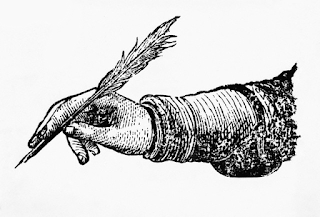 |
| Simon Pirani |
The Social Movement, a group of mainly labour activists in Ukraine, calls in a statement for “solidarity with people who have suffered from the war that has lasted almost eight years, and who may suffer from a new one”.
The statement expresses “gratitude and solidarity to Russian left-wing activists who oppose the imperialist policies of the Kremlin and are fighting for democratic and social transformations in their country”.
 |
| “Our house was stolen by war”: one of Ukraine’s 1.5 million internally displaced people. Photo from commons.com.ua |
The Social Movement denounces the “myth, popular among some Western leftists”, that the Russian-supported “people’s republics” in Donetsk and Luhansk are “the result of popular will”. Their statement says:
The heads of the “Donetsk People’s Republic” and “Luhansk People’s Republic” are integrated into the ranks of the ruling elite of the Russian Federation and have become the mouthpiece of the Kremlin’s most aggressive predatory sentiments. In the “republics” themselves, any opposition political activity, even the most loyal to the Russian government, is suppressed.
In my view, this statement would be a good place to start discussion about how to build solidarity in the face of war, with working-class communities in Ukraine, and with labour and social movements there. So would the principled statement of opposition to Putin’s war drive by the Russian Socialist Movement, which I posted just before the new year.
The (Ukrainian) Social Movement statement concludes with a call for “complete withdrawal of Russian troops from Donbas”. It says that “one of the best means of pressure on the leaders of the Russian Federation would be the seizure of the property and assets of Russian oligarchs and officials in London and other places”.
It calls for “revision of the socio-economic course proposed to Ukraine by the West: instead of destructive neoliberal reforms under the pressure of the IMF – the cancellation of Ukraine’s external debt”. And it urges “more inclusive and progressive humanitarian policies in Ukraine, ending impunity for the Ukrainian far right, and abolition of the ‘de-communisation’ laws”.
One thing many Ukrainians find grotesque is the sight of their country’s fate being discussed by the US and Russia, as though the Ukrainian state did not exist. This is the focus of an article, “Moscow and Washington should not determine Ukraine’s future”, by socialist activist Taras Bilous.
Bilous’s earlier analysis of the breakdown of the Minsk accords is also worth reading.
So is a facebook post written on 20 January by Marko Bojcun, the socialist historian of Ukraine, which I reproduce here with his permission:
Though Putin, the artful player, has several options in his hand, his ultimate objective has been to get the US to join an expanded Normandy format and the Minsk negotiations, and there to help force Ukraine to accept further limitations to its state sovereignty. Basically, that means Kyiv would accept the separatist Donetsk and Luhansk “republics” as internationally recognised autonomous state institutions within Ukraine, but in reality bodies that continue to be run by Russian state ministries – as they already are in a concealed manner. Russia would use them to lever Ukraine’s domestic and foreign policies.
Putin recognises that he can achieve his main goal only with US endorsement. He needs the US to join him in twisting the arms of the stubborn Ukrainians. That has been the point of all these Russian troop movements to Ukraine’s current borders: to get the Americans to weigh in, to keep Ukraine out of any direct talks and to conclude a deal over their heads.
Ukraine is critical to Russia’s long term project of economic, military and diplomatic recovery, its resumption as a Great Power. That means Russia will not stop its drive until it achieves much more. The present conjuncture resembles in some way another historical moment, in 1938, when Neville Chamberlain, the British prime minister, met Joachim Von Ribbentrop, Nazi Germany’s foreign minister, over the Czechoslovak crisis. Chamberlain came out of that meeting, waved a scrap of paper in his hand and declared peace in their time. I wonder what US foreign secretary Anthony Blinken and his Russian counterpart Sergei Lavrov will have to say after their meeting tomorrow?
The answer to that last question turned out to be: nothing much. Blinken offered Lavrov the carrot of a meeting between the US and Russian presidents, something Putin has long craved in his efforts to claim Russia’s “great power” status.
For a substantial analysis from a Marxist standpoint, Bojcun’s 2016 article on “The causes of the Ukrainian crisis” is essential reading.
More things to read in English
Friends are asking where they can find alternative, radical analyses, and views, of the war danger in English. Here are some more suggestions.
- The Russian sociologist Greg Yudin’s view of “why Putin’s Russia is threatening Ukraine” is on Open Democracy Russia, which features a range of alternative viewpoints from across the former Soviet Union.
- A recent comment article by the journalist James Meek is on the London Review of Books web site, on open access. Meek and Paul Mason are among the panelists appearing at an event organised by the Ukrainian Institute in London about the war danger, on Wednesday 16 February. (The Institute, run in the distant past by cold-warrior right wingers, is now managed by liberal, post-Soviet Ukrainians. Its educational and informational events are well worth looking out for.)
- The London-based, official-labour-movement-focused Ukraine Solidarity Campaign regularly publishes information.
- The biggest gap in English-language coverage is about what is going on in eastern Ukraine. I have occasionally translated and published stuff on this blog (see e.g. a recent post here, and, from further back, here, here and here).
- The Kharkiv Human Rights Protection Group web site has excellent, and accurate, coverage of an appalling range of repressive state and military activities – see, e.g., their tags on Crimea and “terrorism” (which includes those “people’s republics”), but note, too, their more general reporting on human rights abuses in Ukraine and Russia.
- It is a job of work to counter the stream of deceit and misinformation from Putin-ists in the UK labour movement. I summed up the arguments in a recent blog post here. I even wrote to the Morning Star, about one of its more grotesque lies – that “hundreds of trade union leaders” were killed by the post-2014 Ukrainian government. Accuracy about dead bodies is not their big thing, it seems. My letter is reproduced below. SP, 24 January 2022.
I sent this letter to the Morning Star newspaper, which claims its favours “peace and socialism”, two weeks ago. The editor has neither published it, nor corrected the gross fabrication to which it refers
Dear Editor,
In the article “Opinion: US and NATO play with fire in their latest anti-Russia campaign”, 9 December, John Wojcik stated: “Hundreds of trade union leaders and activists were murdered by the new right-wing Ukrainian government shortly after it came to power [in 2014].”
This is incorrect. The two major Ukrainian union federations reported no such deaths of union leaders. Nor did the detailed reports by the UN High Commission for Human Rights on civil rights in Ukraine. Some activists were killed in this period, during numerous civil disturbances, but there is no evidence that the government was responsible. (Many people were killed, by Ukrainian, Russian and separatist forces, in the military conflict that began in the summer of 2014. This is not what Wojcik is referring to.)
Many of your readers will have mourned the death of friends and comrades killed for their trade union activity. It would be disrespectful to them to leave uncorrected the statement that hundreds of union leaders were killed.
The article also states that the new Ukrainian government “banned the use of the Russian language”. This is incorrect. A law making Ukrainian the single state language was adopted in 2019. It requires Ukrainian to be used – but not exclusively, i.e. it can be used together with other languages – in certain public spaces. It will be applied to educational institutions and the media, but not to private or religious life. Many Ukrainian socialists are opposed to it. But exaggerating its effect can only help to exacerbate differences between working people on grounds of nationality and language, that historically the labour movement has endeavoured to overcome.
Simon Pirani, London.






One of Russias main concerns is the threat NATO presents to its own security. Russia are demanding Ukraine will neve become, or allowed to become, members of this intimidating organisation. They have a point, whether invading the Ukraine is the answer is another matter. Another point is, do Russia tell the hypocritical US what to do in their "back yard"? No, they do not, and given the USAs interference in Central America they have a nerve lecturing Russia about neighbourly relations. Lets not forget the albeit reduced British military occupation in part of this country!
ReplyDeleteI believe NATO are hell bent on occupying Russias borders all along the west. They are already in Poland, so how are Russia suppossed to respond? I must point out all these negative moves in Russia, militarism, the Russian Mafia and general gangsteris like computer hacking on an international level, prostetution, drug abuse, and countless more negatives have come about sinse the US inspired economic collapse of the Soviet Union. The USSR was far, far from an advertisement for socialism but compared with its successor? Russia now is as bent, corrupt and exploitive as the USA, Britain, France etc. In other words it is a capitalist shit-hole, with which comes militarism. It is part of the capialist course, militarism tgreatening other perceived weaker countries. Another fear of Russias maybe, just maybe, the suspected presence of fascists in the Ukrainian parliament. Given their history, who could blame them for being apprehensive if this presence is correct?
Caoimhin O'Muraike
The US is in no position to fight a war on two fronts. The Ukraine will fall to Russia because all Moscow has to do is turn off their gas supply lines. It remains to be seen if Beijing see's the West being preoccupied with the Ukraine and decides to annex Taiwan at the same time.
ReplyDelete